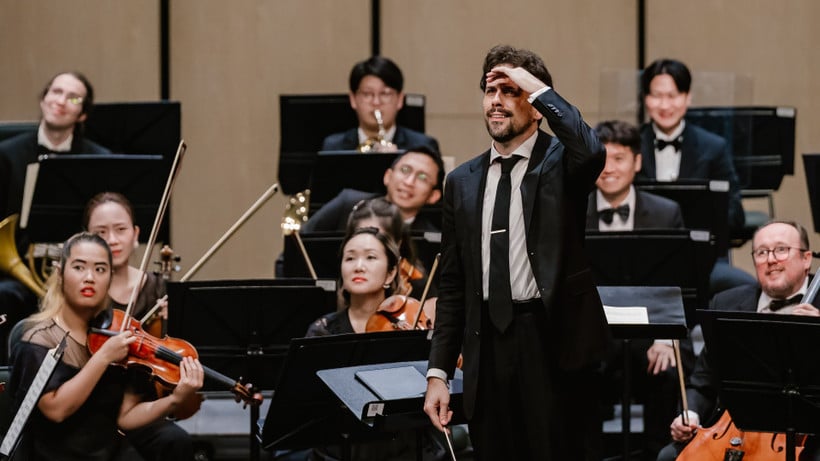
Let the music touch you with a smile
If you ever thought that classical music was synonymous with seriousness and formality. If you ever thought that great composers were all serious and precise from their appearance to their inner world, from their adherence to rules to their absolute guarantee of genre requirements in their compositions. If you ever thought that way, you will definitely change your mind after enjoying Sassy Symphonic Outtakes - a "mischievous" title formed from three "pieces" starting with the initials SSO of the Sun Symphony Orchestra itself.
Led by Music Director and Conductor Olivier Ochanine, The Mischievous Pieces transformed the entire auditorium of the Hoan Kiem Theater into a “lecture hall” without books or lesson plans. There were only interesting surprises beyond the imagination of classical music, with humorous stories gracefully conveyed by the conductor and orchestra members right on the stage of the Hoan Kiem Theater.
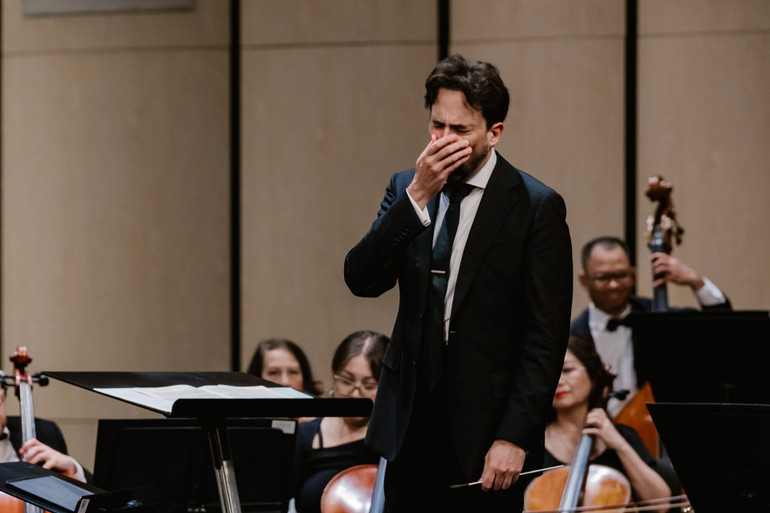
Not stopping at a regular chamber music concert, The Mischievous Pieces brings a rare opportunity for the capital's public - whether knowledgeable about music theory or not - to directly participate in a lively "class" taught by French conductor Olivier Ochanine. During the two-hour duration, the works are not only performed but also interpreted, analyzed and... joked about, causing the audience to burst into laughter many times.
Thanks to that creative bridge, classical music becomes closer, easier to understand and easier to feel, even for beginners. As the conductor shared before the concert, "let the music touch you with a smile", he and each member of the orchestra brought a truly unforgettable night of music.
Pleasant surprises
The highlight of the repertoire was the piece chosen to open the night, titled Toy Symphony. Once thought to be composed by Haydn or Leopold Mozart, Toy Symphony was actually composed by an Austrian monk – Edmund Angerer.
Originally composed for small-scale court entertainments or Christmas celebrations, the Toy Symphony encapsulates a playful, playful 18th-century musical world , where childlike toys are given equal billing alongside classical string and wind instruments. Audiences can enjoy everything from the clear chirping of various birds (cuckoos, larks, quails) to the screeching or smiling of wooden shakers, to whistles, clatters, and toy trumpets.
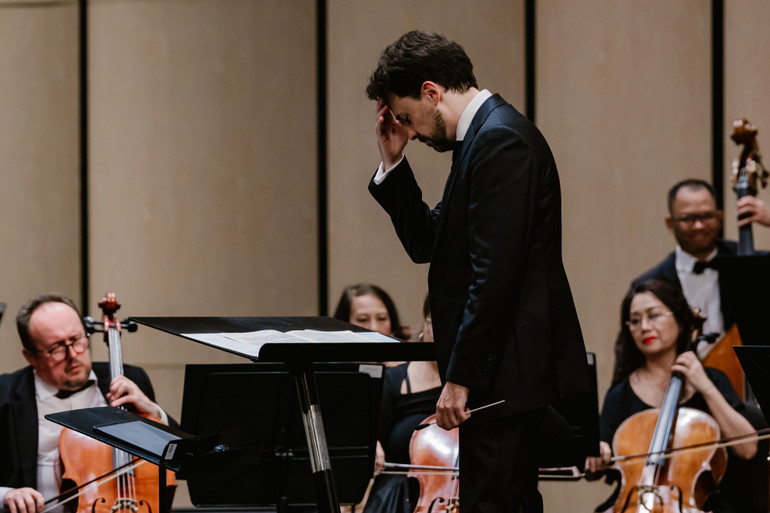
The remaining three works all belong to great names in the world's classical music.
A Musical Joke is a bridge for the genius Wolfgang Amadeus Mozart to satirize the clumsiness in composition through many "deliberately exaggerated" techniques such as awkward counterpoint techniques, off-key horns, poor part succession or unconvincing endings. The genius composer's "joke" has been interpreted in many ways, some consider it a mockery of amateur composers and incompetent local musicians, others lean towards a sarcastic attitude towards overly self-aggrandizing opponents. But no matter how you understand it, the work is still an interesting piece of music that combines intentional "mistakes" and boldly displays its own unique charm.
12 Contredanses was composed by Ludwig van Beethoven around 1791, dedicated to the vibrant aristocratic balls in Vienna - the cradle of European classical music. Although the duration is very short with each piece lasting only about a minute, when combined into a complete work, 12 contredanses paints an extremely vivid overall picture of a ball with full of witty, graceful and sometimes intentionally off-beat elements.
Symphony No. 60 in C major , titled Il Distratto (The Absent-Minded Man) , was the most entertaining piece to close the program. Inspired by the score of a comedy with a forgetful protagonist, Joseph Haydn created a six-movement epic symphony - a hilarious rollercoaster of unprecedented jokes such as sudden pauses, false starts, chaotic moods, unusual expressions... The talented composer demonstrated his sense of humor at its best, playfully parodying familiar musical motifs, poking fun at his own themes, leading the audience down absurd, unruly paths, and then suddenly turning everything upside down.
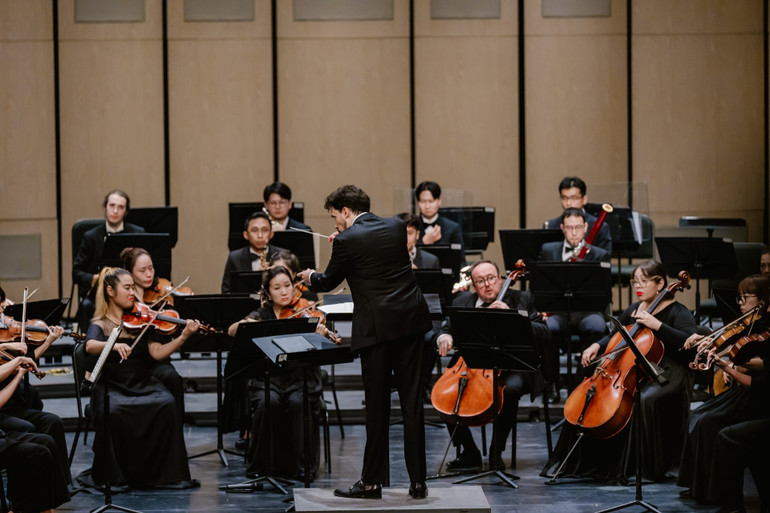
A night filled with joy
Accompanied by the charming, humorous antics of all four composers, the audience in the capital experienced an extremely relaxing musical night. They laughed out loud at the interesting interludes from the “toy instruments” in Toy Symphony, eagerly discovering that a work that seemed to be for children was composed with such high technique.
They grimaced at the off-key horn passages, the chubby, off-key endings, the awkward silences, were surprised by the long, incomprehensible violin solos, and laughed heartily at the two musicians who were rudely kicked out by the conductor. And they realized Mozart’s genius for “writing brilliantly badly,” when he could joke so gracefully and deeply through A Joke Symphony.
They were also surprised by the unexpected accents and sudden changes in intensity, the cheerful melodies that easily made the dancers absent-mindedly miss the beat, and the musical phrases like Beethoven's teasing words. And clearly felt 12 contredances, although modest in duration, but fully carrying the mark that later made Beethoven's name: intelligent, bold and always outside of all stereotypes.
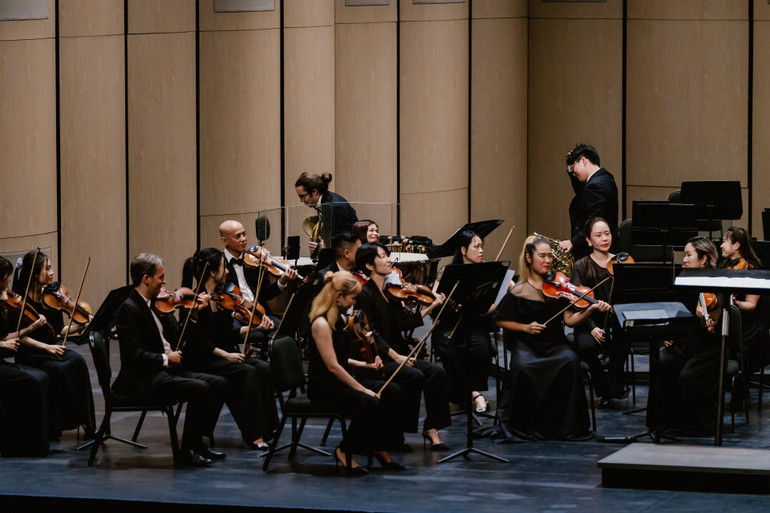
The final piece brings a fair amount of laughter to the room, both by playing up the “tuning” gag in the final movement and by contrasting the solemnity of the remaining movements with the out-of-control chaos. In a world where orchestras often play it safe, Il Distratto reminds us that even the most solemn, refined works can be downright funny, if they want to be.
A new repertoire, a creative bridge will help bring classical music closer to the general public. To understand and feel is to love, the efforts of many art units, including SSO, are bringing the finish line closer!
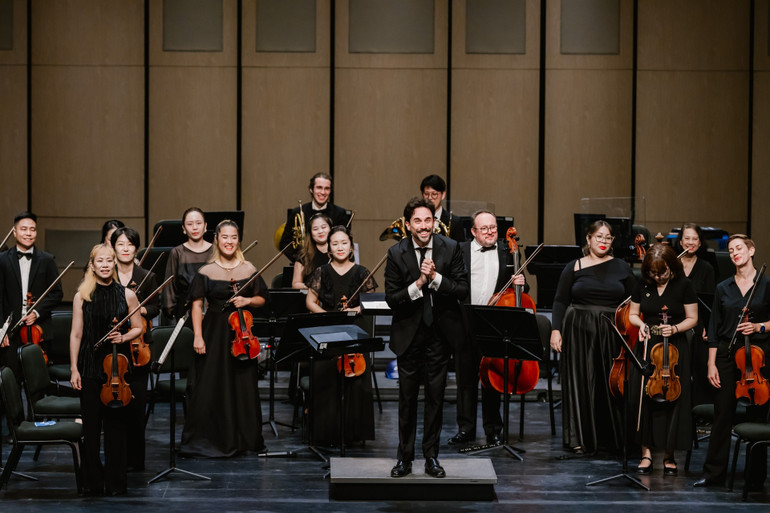
Source: https://nhandan.vn/nhung-manh-ghep-tinh-nghich-post895098.html






























![[Photo] National Assembly Chairman Tran Thanh Man visits Vietnamese Heroic Mother Ta Thi Tran](https://vphoto.vietnam.vn/thumb/1200x675/vietnam/resource/IMAGE/2025/7/20/765c0bd057dd44ad83ab89fe0255b783)






































































Comment (0)